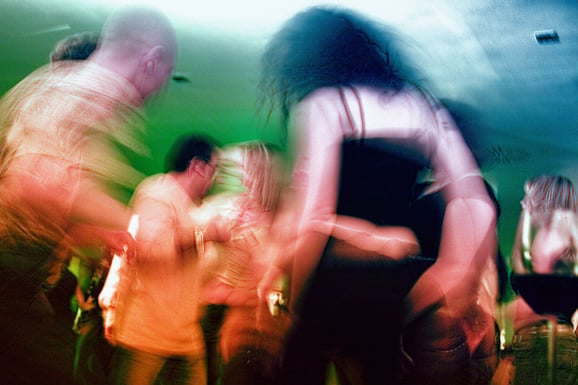
It’s that time again. Another year in the books, one that rocketed by for everyone but kids, who spend a lot more of their time present to their world and gazing at barely moving schoolroom clocks. A lot of adults at this time tend to look back over the year and try to remember what notable things took place. We think and think, but sometimes nothing comes to mind. Uh-oh.
The brainlock comes from the fact that the mind is a little passive-aggressive. It actually stops noticing the things we do over and over. It wants new data. It wants you to satisfy one of the key human cravings: novelty. How do you do that? With curiosity, the built-in call to discover your world, and an under-the-radar new year’s resolution we would do well to take to heart.
THE MISSING NEW YEAR'S RESOLUTION
You seldom see a resolution like “I want to be more curious” this year, because we take our discovery mechanism for granted and keep it sidelined too much of the time. Sometimes it’s because the security equipment overrides the urge to know. Other times autopilot and ruts keep us locked on routine. There’s the law of least effort, in which humans are wired to go for the easiest path, the most familiar, even though the more challenging one is what brain researchers say we really want—the path of engagement.
Yet researchers have found that curiosity is one of the keys to life satisfaction and the learning that makes us feel we are moving forward. “Curiosity motivates people to act and think in new ways and investigate, be immersed, and learn,” write psychologists Todd Kashdan, author of Curious, and Paul Silvia, who specialize in studying curious behavior.
They report that people with higher curiosity are more inclined to participate in activities that are personally and socially enriching, something key to happiness and work-life balance. More curiosity on a daily basis also leads to something that is quite remarkable: greater “perceived meaning and purpose in life.”

New knowledge and experiences align us with internal goals that help us feel we are determining the content of life, which many researchers say is essential for gratification and fulfillment. Those payoffs come courtesy of a drive at the center of learning and a key positive emotion: interest. Curiosity is the agent of understanding and discovering. Without copious use of it, boredom sets in, as do years that fly by without notable events.
THE EXPLORATION BONUS
We are designed to follow our curiosities, to learn and grow, to the point that just the expectation of experiencing something novel can trigger the release of dopamine, a chemical that leads to the rush of satisfaction and a feeling of positive mood. MRI scans showed that the right ventral striatum interpreted novelty as if it were a positive event that actually occurred, suggesting that novelty is its own reward. Researchers call it the exploration bonus. Let’s resolve to give ourselves this bonus often in 2018.

We are all explorers if we just follow our biochemistry. The novelty reward is a biological cue to learn and broaden our world. “Each network in your brain is striving against each other for feedback from the outside world,” writes John Ratey in A User’s Guide to the Brain. “Couch-potato cells that don’t get enough signals will die off, while cells that stay active continue to grow and build in strength.”
Dendrites, the conduits between brain neurons that keep information flowing, shrink or vanish altogether if they’re not stimulated with new input. Active learning and physical exercise increase dendrite networks and also boost the brain’s remarkable regenerating capacity, known as plasticity—the ability for the old dog to learn new tricks and physically reshape the brain while doing it.
A pioneer of plasticity research, Michael Merzenich, says, “It’s the willingness to leave the comfort zone that is key to keeping the brain new.”
THE BEST GOALS ARE INTERNAL
One of the most powerful pieces of curiosity is that it is an intrinsic goal. You do it just to do it. You act unconditionally. You dive in to a new activity because of its inherent interest to you. Most motivation is externally driven—like money, beauty, status. These goals only give us a brief bump in happiness, and then we have to go get more of it. This is because external goals are based on outside approval, what others think, so they don’t stick. We don’t really buy them. Intrinsic goals, on the other hand, go to the bottom line of your core needs—autonomy, competence, and connection with others.
These three needs are at the core of a fabulous framework for well-being and gratification developed by Richard Ryan and Edward Deci at the University of Rochester. When we act for reasons that allow choice, the ability to feel effective, and a chance to connect with others in an authentic way for an intrinsic goal, we are gratified, and that sets off the dance of dopamine in our brain.

Curiosity is the ultimate intrinsic drive. When you decide to search out an answer to a question on the Internet or decide to take a dance class and see that you don’t have two left feet, you are satisfying internal longings and the mandate of your brain to get out and learn. You are writing the script of your life, which is the overriding need we all have to participate in our world. Let's take a look at a few ways we can start doing this more often.
JUMP-STARTING CURIOSITY
5 Ways to Boost Your Curiosity in 2018:
1. Ask more questions. Anyone you speak to is a potential lead to something fun or riveting. Ponder why and how more often. What are they doing for fun?
2. Follow the learning. What do you want to know more about?
Try new things. Put yourself in situations that are out of your normal orbit, and instead of dismissing them, say, “What if I tried that?” Ask yourself, What have I tried lately?
3. Get out there. Physically exiting the control bubble exposes you to new stimuli and sources of curiosity. Identify two hobbies you would like to try, and when you will try them. Travel more often. It's the home of new data. Everything is novel around you. You notice your world, which means you remember it.
4. Research idle musings. Follow up on that thought. It's your inner discovery agent leading you to interests and affinities. People who have interests find life interesting.
5. Avoid jadedness. The seen-it-all-pose of why-bother is the kiss of death for curiosity.
Brain scientist Gregory Berns says there are two key elements to long-term fulfillment: novelty and challenge. Both lead to the payoffs of internal growth and satisfaction that come from answering the call to know and grow. Let’s stretch out in 2018, be more curious, and have something in the memory bank when we look back on 2018 next year.
For details on how to find more meaningful engagement at work and in life, explore my work-life balance training, classes, and coaching, the step of which is to click one of the buttons below.




